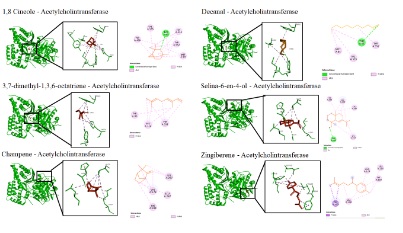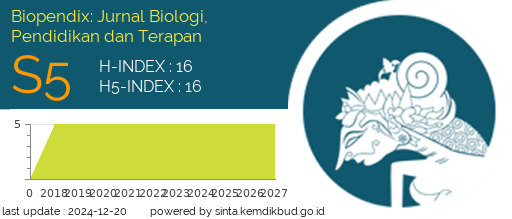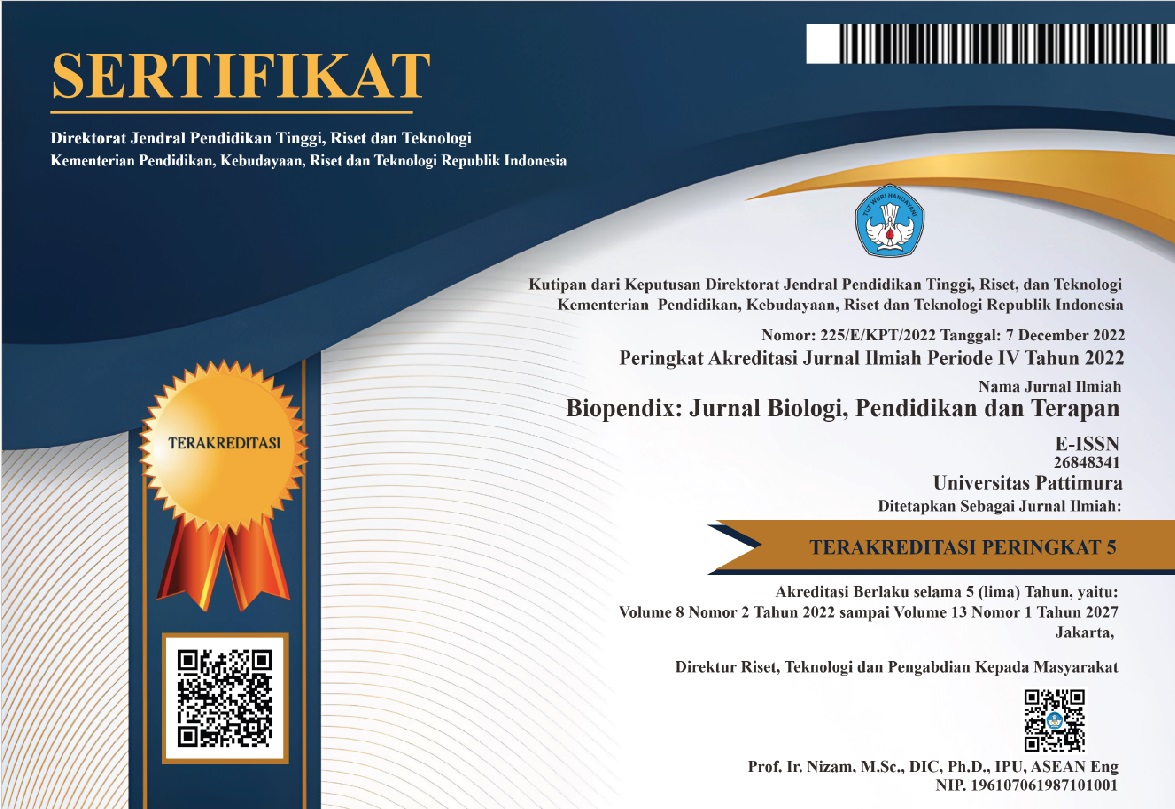ANALISIS SENYAWA FITOSTEROL Cymbopogon citratus dan Curcuma longa SEBAGAI ANTIALZHEIMER
Abstract
Background: Alzheimer is a disease with decreased episodic memory function and cognitive function. The
treatment system is carried out by inhibiting the performance of genes that have an Alzheimer's stimulus function.
Alzheimer sufferers have a component that functions as a cholin stimulator and Acetyl CoA is
Acetylcholintransferase. Treatment is done by inhibiting Acetylcholintransferase with Cymbopogon citratus and
Curcuma longa. The purpose of this study was to analyze the potential phytoserol content of Cymbopogon
citratus and Curcuma longa as anti-Alzheimer
Methods: The method used is the in-silico study approach. Protein Acetylcholintransferase (2fy3) was obtained
from Protein Data Bank (PDB). The three-dimensional structure of phytosterol compounds identified in
Cymbopogon citratus and Curcuma longa were downloaded from the PubChem database. Proteins and bioactive
compounds were prepared sequentially using the Discovery studio ver 19.0.0 and the PyRX 0.8 program.
Proteins and compounds were interacted with the PyRX 0.8 program and analyzed using the Discovery Studio
ver.21.1.0 software
Results: The results showed that the phytoserol content of Cymbopogon citratus and Curcuma longa (1,8
Cineole, 3,7-dimethyl-1,3,6-octatriene, Champene, Decanal Selina-6-en-4-ol, Zingiberene) inhibited the active
side of acetylcholinesterase by inhibiting acetylcholinesterase bind amino acid residues through essential oils.
This inhibition directly stops the hydrolysis process of acetylcholine into cholin and acetyl CoA so that it can
prevent damage to brain cells.
Conclusion: The phytoserol content of Cymbopogon citratus and Curcuma longa is predicted to have potential
as anti-Alzheimer through inhibition of Acetylcholintransferase
Downloads

Authors who publish with this Journal agree to the following terms:
- Author retain copyright and grant the journal right of first publication with the work simultaneously licensed under a creative commons attribution license that allow others to share the work within an acknowledgement of the work’s authorship and initial publication of this journal.
- Authors are able to enter into separate, additional contractual arrangement for the non-exclusive distribution of the journal’s published version of the work (e.g. acknowledgement of its initial publication in this journal).
- Authors are permitted and encouraged to post their work online (e.g. in institutional repositories or on their websites) prior to and during the submission process, as it can lead to productive exchanges, as well as earlier and greater citation of published works




 2
2






